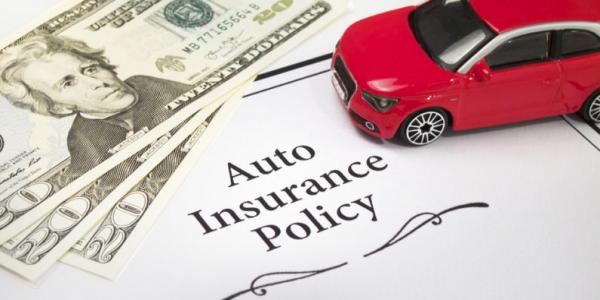An Explanation of Insurance Terms
However, there is no replacement for some of the terms and it will be helpful to know what they are. Below, you will find some of them. For further information or more detailed explanation you should check our blog pages.
Accident Forgiveness: After a certain period of no claims accumulated it would be said to see them wiped out just after one claim. So, a few companies offer to insure no claim bonuses with little extra premium or sometimes without any payment. This will keep the rates unchanged even there is a claim.
Act of God: It refers to natural disasters like earthquake and floods.
Aftermarket Parts: Any additional parts fixed on an automobile outside of the manufacturing plant.
Agreed Value: Some classic cars are well looked after and valuable because they are rare. If they are ever totaled it would be difficult to determine their value in the open market. Therefore, and agreed value to be paid is determined at the outset and recorded in the policy.
Amendment Schedule: This is the part that records any changes made to a standard policy.Anti-lock Braking System (ABS): An electronic braking system that stops the car in a controlled manner without causing it to swerve valiantly.
Anti-theft Device: This could be anything from alarms to steering wheel looks and GPS. Anything that will make an auto thief think twice and move onto an easier target.
Arbitration: This is a process of involving an independent third party expert to settle the disputes.
Assigned Risk: After having several accidents and traffic citations some drivers become uninsurable. Every state requires insurers to accept some of these motorists and assigns them based on agreed terms.
Assured: It is a synonym of insured.At-Fault: Simply, the driver who caused the accident and now has to be responsible for the payment of the damages caused.
Binder: Temporary confirmation of policy being incepted where full documentation follows shortly after.
Bodily Injury: Any damage sustained by a person (in relation to accidents).Cancellation: Ending a policy before its renewal date.
Certificate of Financial Responsibility: SR-22, SR-50, or other document issued by the state that certifies the acceptability of the cover purchased.
Certificate of Satisfaction: Confirmation by the policyholders that they are satisfied with the settlement of their claims or repairs carried out on the automobile.
Claim: A declaration of insured losses and demand for payment under the policy terms. 
Claimant: A policyholder who makes a claim.
Clue Report: Comprehensive Loss Underwriting Exchange (Clue) Report – This report shows a 7-year history of an individual’s automobile losses.
Competitive Auto Repair Parts: These are the parts that are not made by the original manufacturer of the vehicle but they are deemed to be sufficiently good and usually a lot cheaper.
Competitive Estimates: Estimates received from two completely independent body repairers to fix the car after damage. Auto insurers will require at least two before agreeing to pay one of them.
Conditions: The section of the policy documents that explains the responsibilities of both the insured driver and the carrier.
Continuous Coverage: Period of time a driver has maintained cover without any gap in between.
Coverage: The perils and amounts insured under the policy.
Customized Equipment: Equipment or accessories installed after the manufacturing process. These need to be covered with special amendment as they are not usually assumed to be existent as standard.
Customized Car: The one modified to specific requirements of the owner and not just usual repairs or part changes. Spoilers and more powerful engine are some of the examples.
Declarations Page: The page within policy documents that states the key coverage details, including the period covered and specific amounts for the different parts of the policy.
Deductible: First part of the loss paid by the policyholder. This amount is agreed and stated and the insurers will take this amount out from the final settlement. Depreciation: The loss of value for any property/automobile due to wear and tear and age.
Drive-Other-Car Endorsement: An optional cover to include policyholder driving a non-owned vehicle.
Endorsement: An additional cover or condition on top of what is usually offered. This may be used to change some of the standard terms as well.
Exclusion: A person, property, peril, or situation may be excluded in the policy as standard or specifically.
Financial Responsibility Law: State laws that require drivers to have enough money to pay for injuries they cause to third parties. This requirement is met by buying liabilities policies.
First Party: The insured. First Party Benefits: Paid to policyholders and anyone else included in the policy, irrespective of who was to blame.
Gap Insurance: Optional coverage to make sure that the loan on a car is paid completely if it is totalled.
Guarantee Funds: Every state requires insurance companies contribute to a fund which is there to pay for claims in case one of the licensed insurers bankrupts.
Inception Date: The date policy starts.
Indemnification: Compensating a party who has suffered an insured loss.
Insurable Interest: Having an interest in the insured losses, property or person. For example, a company can insure a key employee and get paid if something happens to that person.
Insurance Fraud: Receiving insurance payment by falsifying the claim, accident or losses.
Insurance Credit Rating: In some states, underwriters are allowed to look at financial standing of a person to fine tune the premiums offered. Insurance credit rating of an applicant is similar to credit score.
Insured Drivers: Anyone allowed to driver the vehicle under the purchased policy contract. Joint Underwriting Association (JUA): In some cases, several underwriters can form a syndication to share the risks and/or profits of issuing a policy.
Lapse in Coverage: Certain circumstances like cancelling or not renewing a policy can break the continuation of coverage. Those policies are known as lapsed.
Legal Liability: A situation in which the responsibility of damage compensation is assigned or assignable by law.
Liability: A case or possibility of being help responsible for damages to property or injuries to people. Liability
Insurance: Getting sufficiently covered for possible claims against you due to the damages and injuries you cause.
Limits of Liability: The maximum agreed dollar sum an insurer will pay for a particular loss or within a specific time period. Line of Insurance: Type of insurance, i.e. car, life, home, or health coverage.
Loss: The dollar amount of damages. This can be hospital costs due to injury or damages to vehicles or properties.
Loss Adjuster: A person usually employed by the insurance company to check the claims and handle the repairs or other ways of settlement.
Loss of Use: Usually coverage provided or claims made for the inability to use a certain property or vehicle. For example, third parties (and the policyholders, if they have coverage) can claim for the car rental when their cars are being repaired.
Material Misrepresentation: Giving false information or not mentioning an important fact to the insurer, either at the time of getting quote or when the facts are known at a later stage.
Minimum Limits of Liability: The lowest amount of liability cover required by the state regulations.
Named Drivers: People who are specifically mentioned in the policy as designated drivers. Others may be allowed to drive with the permission of the owner on occasion.
Negligence: Not showing sufficient care to avoid unpleasant, harmful or dangerous situations.
No-Fault Insurance: A policy arranged to pay benefits irrespective of who was responsible for a collision. No fault states require every policyholder insure their own losses.
Non-Owned Auto: A vehicle that is not owned by you, but you may have permission to drive.
Non-Renewal: An insurer preferring not to offer renewal terms with the intention of letting the customer go.
Occasional Driver: Not the primary driver under a policy and probably someone who is not normally expected to drive the insured auto.
Per Occurrence Limit: The maximum amount payable in connection with a single insured incident. Per Person Limit: The maximum amount payable to an individual in connection with a single occurrence.
Personal Injury Protection: May cover costs of injuries to you, insured family members, and passengers (if not covered by their own PIP) irrespective of who is to blame.
Personal Property: An item personally used by someone like laptop, glasses, handbag, watch and jewellery. Not moveable items like land and real estate are not included.
Policy: An insurance agreement between the policyholder and provider.
Policy Term: The duration in which coverage provided, normally one year.
Policyholder: The person who benefits from the provisions of the policy.
Pre-Accident Condition: The state of a car before it sustained the damages in the accident.
Premium: The cost of an insurance policy for the period covered.
Primary Use: The main purpose a vehicle is kept for (work, pleasure, farming).
Principal Driver: The individual who is likely to drive the car most.
Pro Rata Cancellation: The allocation of the premiums for the time on risk and returning the rest back to the policyholder after termination of a policy.
Reinstatement: The restart of a cancelled policy, usually after making the missed payments.
Renewal: The decision of carrying on with the existing policy for another term.
Rental Reimbursement: A widespread optional coverage that pay for car hire when the insured vehicle is damaged or stolen.
Replacement Cost: The actual cost of repairing or replacing an insured object.
Subrogation: An attempt by an insurance company to recover the costs of damages the insured individuals suffered from at fault third parties or their carriers.
Surcharge: The additional premium that may be required from time to time due to changes in circumstances or in the light of new information.
Third Party: Not the policyholders but people who may have an interest in the availability of the cover (possibly because of the damages they are made to suffer).
Third Party Claim: When a third party alleges that personal injury or property damage brought on by the insured.
Tort: Legal liability as a result of either an accidental or an intended harm done to others.
Total Loss: When a car is not recovered after theft or damaged beyond repair, it is considered total loss and the company pays the open market value of it as a settlement.
Umbrella Insurance: Added to a policy’s liability, it provides higher amounts of coverage. Underinsured: Failure of a policy purchased to meet all the damages suffered or claims made.
Underwriting: It is the process of determining the premium, cover terms and accepting or rejecting a risk.
Vehicle Identification Number (VIN): The unique 17-digit number assigned to each vehicle manufactured for sale in the United States
.





Leave a Reply
You must be logged in to post a comment.